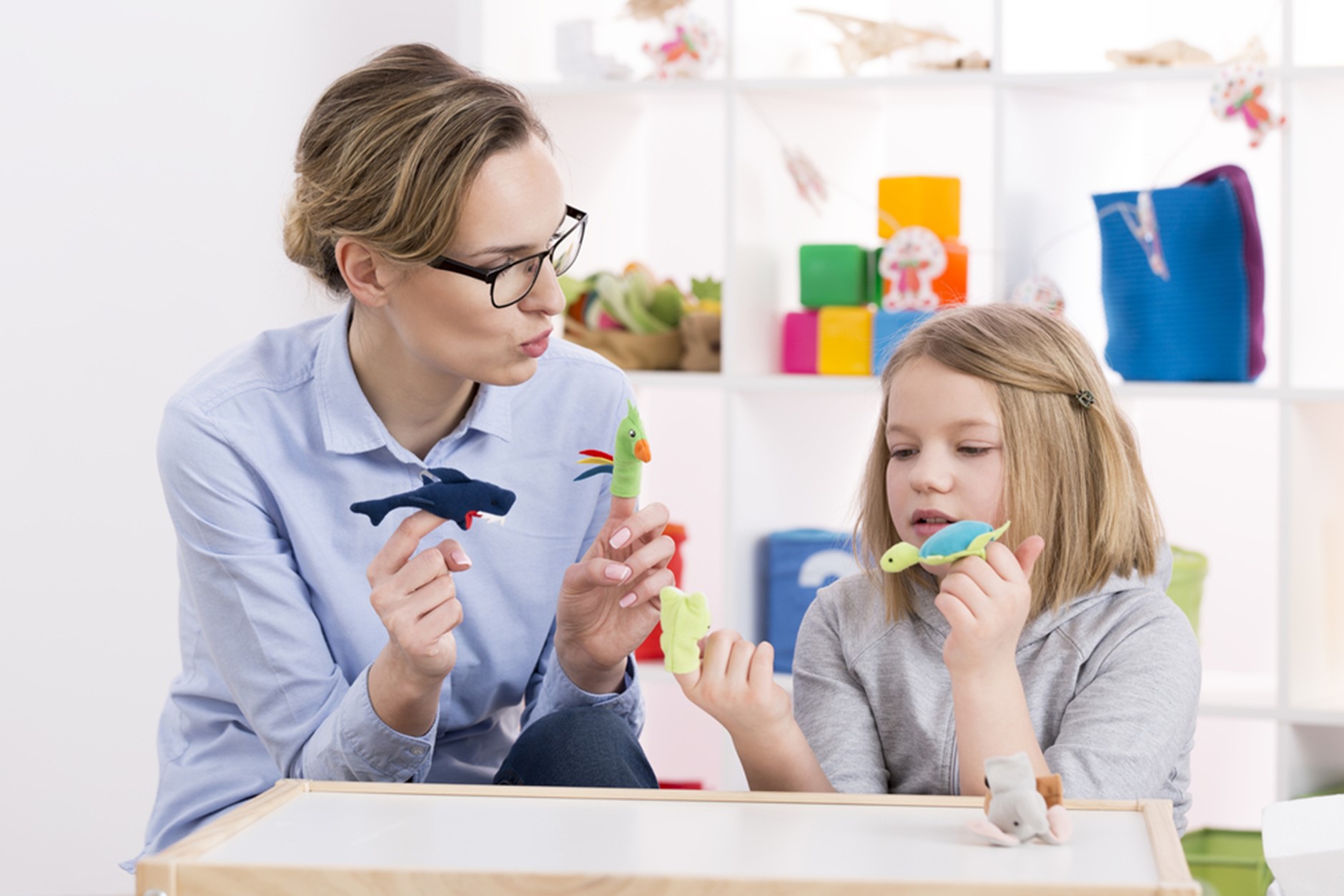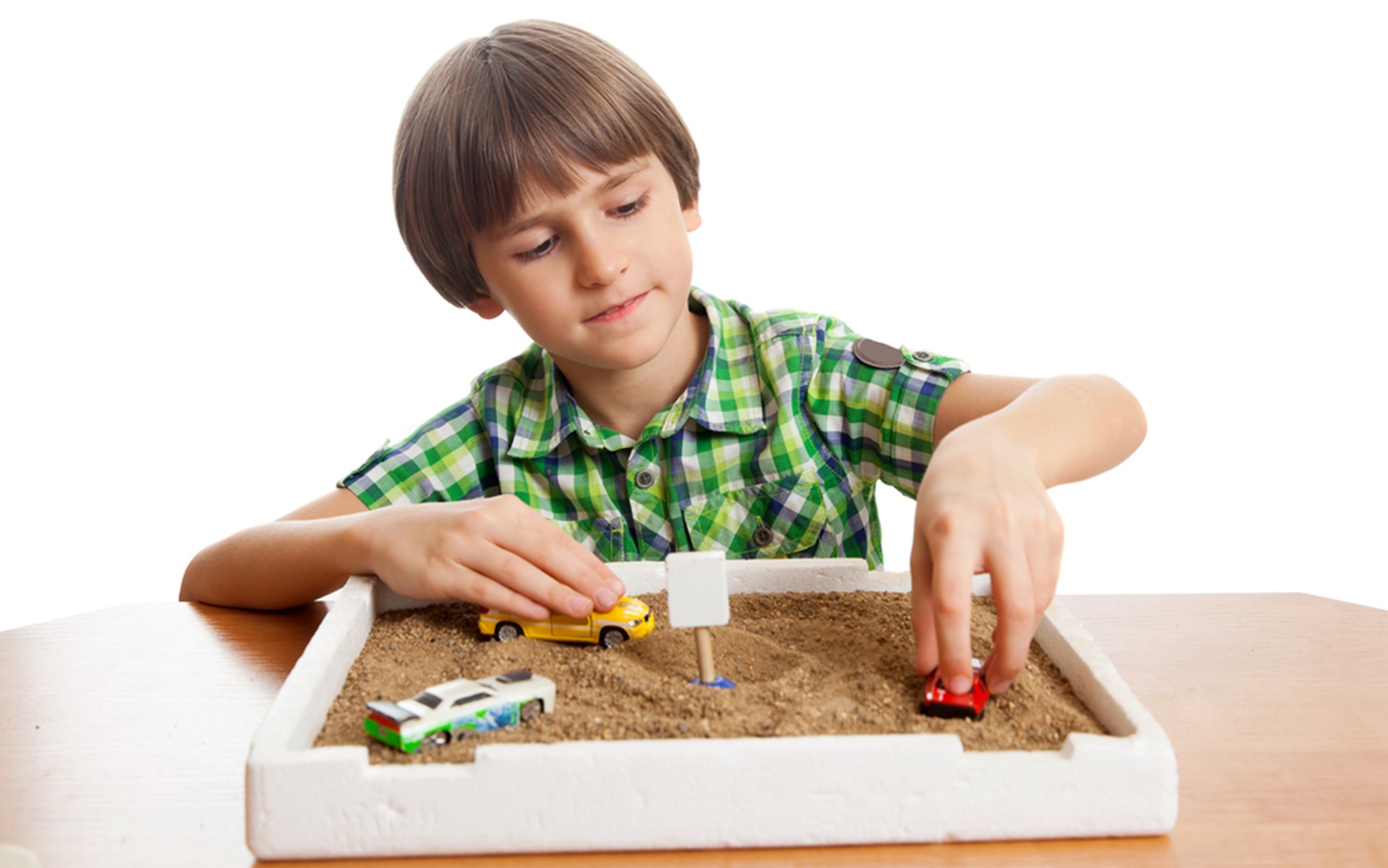If you work in or are interested in education, child psychology or counselling for children, chances are you may have heard of play therapy. Play has long been understood as vitally important — the Ancient Greek philosopher Plato noted that observing an individual at play teaches you a great deal about them. The first person to put play therapy into use for psychosocial problems was the great Sigmund Freud in 1909. Various psychologists developed the technique throughout the 20th century, and it has grown in prominence.

The British Association of Play Therapists (BAPT) was formed in 1992 by a number of individuals who were studying the approach at the Institute of Dramatherapy. Since its inception, BAPT has spread the British Play Therapy movement and now manages a register of qualified play therapists. Several universities in the UK and worldwide offer play therapy courses and degrees up to Masters level.
What is Play Therapy?
Play therapy can be used to help children process complex emotions and deal with difficult issues that have occurred or are ongoing. A play therapist is a mental health provider who has been sufficiently trained in observing, evaluating and understanding the way that a child is playing.
Because most people associate the word ‘play’ with unfocused activities, they sometimes discount the effectiveness of this therapy for psychosocial issues that a child may be going through. However, children have been known to recognise and address very complex problems and have also managed to find lasting resolutions. By working with children over time, a play therapist helps them discover and practice various techniques, which can also be adapted into strategies used later in life.
Who is Play Therapy For?

The majority of play therapy clients will be children between the ages of three and twelve. It’s important to note that there will be times when a child is suffering from an issue that needs to be addressed medically or in another way rather than using play therapy.
Clients are frequently children who have faced a traumatic experience that has left them shaken and lacking in confidence. They will usually be very stressed and, as a result, unable to perform to their full potential. Such children may present as withdrawn and detached. Equally, it is common to see ones who are angry and exhibits aggressive outbursts.
Many children who benefit from play therapy are suffering from symptoms that are not necessarily the result of trauma. Phobias and anxiety are very common and, if left untreated, can be highly problematic later in life. Play therapists frequently assist children to whom the following apply:
- Exclusion from school
- Sleeping difficulties
- Eating disorders
- Fear of commitment
- Failure to form relationships with peers
- An inability to express themselves
- Adopted or placed in foster care
- Lost someone to death
- Illness
- Autism
- Behavioural issues
What are the Advantages of Play Therapy?
These are testing times for children, but thankfully, there are more therapeutic options than ever to help those suffering from trauma and psychological issues. For parents, teachers and other caregivers, it can be helpful to know why play therapy can be an effective tool.
- It provides a safe space for the open expression of feelings. When children attend play therapy sessions, they learn how to express themselves in a manner that is constructive (rather than destructive) for themselves and their interpersonal relationships.
- It helps build decision-making skills and responsibility. When a child has these, they are better equipped to cope with challenges now and in the future.
- It allows children to build confidence. Play therapy encourages trust and helps teach children to build a new, bigger comfort zone.
- It aids communication and helps the child understand the importance of open dialogue, especially when discussing their problems and concerns.
What Techniques are Used in Play Therapy?

There are hundreds of techniques used in play therapy, and methods need to be adapted according to what the individual child is facing. Sand tray therapy is popular as a means of visualising and safely distancing emerging thoughts, feelings and ideas. Sand tray therapy is usually used with children who have undergone trauma. The therapist may ask them questions about the sand tray, such as why they have chosen to add certain objects to the tray or if they want to change the arrangement of the tray in any way. In some cases, the therapist may also do this themself.
The ‘Worry Can’ technique was designed by Debbie Jones to help children in expressing things that worry them. The therapist cuts a piece of paper large enough to cover a tin can. The child is then asked to either draw or write scary things on the paper and colour it with markers. The child then glues the paper onto the can, and the lid is placed on the can. A slot is cut on the lid of the can, large enough to let small papers slide through. The child is then asked to write their worries on separate pieces of paper and put them into the can. The child should share some of their worries with the therapist while they are putting the papers in the can.
The can technique is useful for treating children with low self-esteem. These children have worries that they keep bottled up related to their parents, school work, teachers, self-image, or friendships. These worries cause disruptions to the relationships these children have and disturb their everyday activities. By voicing and discussing solutions to their worries, these children can overcome the problems associated with their low self-esteem.
What Makes a Good Play Therapist?
The answer to this question overlaps with the more general question, “What makes someone good at working with children?” Below are the key features you can expect in a professional play therapy practitioner.
- They have the ability to gain children’s trust.
- They understand deeply the different ways that children may communicate feelings.
- They have empathy and an open, friendly manner.
- They possess resilience and insight. These features are vital for working with children in emotional distress.
- They have good spoken and written communication skills.
- Their knowledge and understanding of child development are advanced.
- They possess the ability to work with difficult behaviour and facts without judgement.
- They have a full understanding of issues surrounding confidentiality.
If you’d like to learn more, our Play Therapy Diploma Course is currently available for just £29 for a limited time (reduced from £127).





